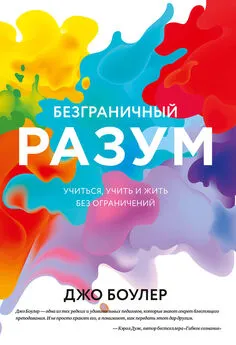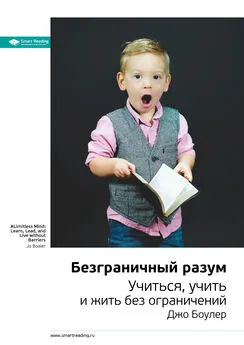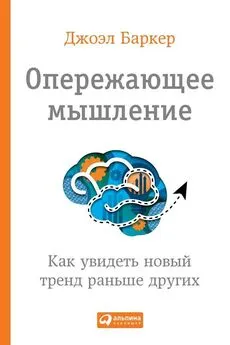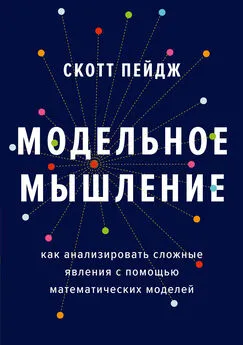Джо Боулер - Математическое мышление
- Название:Математическое мышление
- Автор:
- Жанр:
- Издательство:Манн, Иванов и Фербер
- Год:2019
- Город:Москва
- ISBN:9785001008910
- Рейтинг:
- Избранное:Добавить в избранное
-
Отзывы:
-
Ваша оценка:
Джо Боулер - Математическое мышление краткое содержание
Математическое мышление - читать онлайн бесплатно ознакомительный отрывок
Интервал:
Закладка:
Дуэк К. Гибкое сознание. Новый взгляд на психологию развития взрослых и детей.М.: Манн, Иванов и Фербер, 2013.
Лакатос И. Доказательства и опровержения. Как доказываются теоремы. М.: ЛКИ, 2010.
Abiola O., Dhindsa H. S. Improving classroom practices using our knowledge of how the brain works // International Journal of Environmental & Science Education. 2011. Vol. 7 (1). Pp. 71–81.
Baker D. P., LeTendre G. K. National differences, global similarities: World culture and the future of schooling. Stanford, CA: Stanford University Press, 2005.
Ball D. L. With an eye on the mathematical horizon: Dilemmas of teaching elementary mathematics. The Elementary School Journal. 1993. Vol. 93 (4). Pp. 373–397.
Beaton A. E., O’Dwyer L. M. Separating school, classroom and student variances and their relationship to socio-economic status // D. F. Robitaille, A. E. Beaton, eds. Secondary analysis of the TIMSS data. Dordrecht: Kluwer Academic Publishers, 2002.
Beilock S. L., Gunderson E. A., Ramirez G., Levine S. C. Female teachers’ math anxiety affects girls’ math achievement // Proceedings of the National Academy of Sciences. 2009. Vol. 107 (5). Pp. 1860–1863.
Beilock S. Choke: What the secrets of the brain reveal about getting it right when you have to. New York: Free Press, 2011.
Black P., Harrison C., Lee C. et al. Working inside the black box: Assessment for learning in the classroom. London: Department of Education & Professional Studies, King’s College, 2002.
Black P. J., Wiliam D. Inside the black box: Raising standards through classroom assessment. Phi Delta Kappan, 1998a, October. Pp. 139–148.
Black P. J., Wiliam D. Assessment and classroom learning // Assessment in Education. 1998b. Vol. 5 (1). Pp. 7–74.
Blackwell L., Trzesniewski K., Dweck C. S. Implicit theories of intelligence predict achievement across an adolescent transition: A longitudinal study and an intervention // Child Development. 2007. Vol. 78 (1). Pp. 246–263.
Boaler J. When even the winners are losers: Evaluating the experiences of “top set” students // Journal of Curriculum Studies. 1997. Vol. 29 (2). Pp. 165–182.
Boaler J. Open and closed mathematics: Student experiences and understandings // Journal for Research in Mathematics Education. 1998. Vol. 29 (1). Pp. 41–62.
Boaler J. Experiencing school mathematics: Traditional and reform approaches to teaching and their impact on student learning (revised, expanded edition). Mahwah, NJ: Erlbaum, 2002a.
Boaler J. Paying the price for “sugar and spice”: Shifting the analytical lens in equity research // Mathematical Thinking and Learning. 2002b. Vol. 4 (2&3). Pp. 127–144.
Boaler J. The “psychological prisons” from which they never escaped: The role of ability grouping in reproducing social class inequalities. FORUM, 2005.
Boaler J. Promoting “relational equity” and high mathematics achievement through an innovative mixed ability approach // British Educational Research Journal. 2008. Vol. 34 (2). Pp. 167–194.
Boaler J. Ability and mathematics: The mindset revolution that is reshaping education // FORUM. 2013a. Vol. 55 (1). Pp. 143–152.
Boaler J. Ability grouping in mathematics classrooms // S. Lerman, ed. International encyclopedia of mathematics education. New York: Springer, 2013b.
Boaler J. The stereotypes that distort how Americans teach and learn math // Atlantic, 2013c, November 12.
Boaler J. Ability grouping in mathematics classrooms // S. Lerman, ed. Encyclopedia of mathematics education. Dordrecht: Springer Science+Business Media, 2014. Pp. 1–5 // doi: 10.1007/978-94-007-4978-8.
Boaler J. Changing the conversation about girls and STEM. Washington, DC: The White House, 2014a, April 28 // http://www.youcubed.org/wp-content/uploads/Youcubed-STEM-white-house.pdf.
Boaler J. The mathematics of hope — Moving from performance to learning in mathematics classrooms. 2014b // https://www.youcubed.org/the-mathematics-of-hope-moving-from-performance-to-learning-in-mathematics-classrooms.
Boaler J. Fluency without fear: Research evidence on the best ways to learn math facts. YouCubed at Stanford University, 2014c // http://www.youcubed.org/wp-content/uploads/2015/03/FluencyWithoutFear-2015.pdf.
Boaler J. What’s math got to do with it? How teachers and parents can transform mathematics learning and inspire success. New York: Penguin, 2015a.
Boaler J. Memorizers are the lowest achievers and other Common Core math surprises // The Hechinger Report. 2015b, May 7 // http://hechingerreport.org/memorizers-are-the-lowest-achievers-and-other-common-core-math-surprises.
Boaler J., Greeno J. Identity, agency and knowing in mathematics worlds // J. Boaler, ed. Multiple perspectives on mathematics teaching and learning. Westport, CT: Ablex Publishing, 2000. Pp. 171–200.
Boaler J., Humphreys C. Connecting mathematical ideas: Middle school video cases to support teaching and learning. Portsmouth, NH: Heinemann, 2005.
Boaler J., Meyer D., Selling S. K., Sun K. The Simpsons sun blocker: Similarity and congruence through modeling, exploration, and reasoning. YouCubed at Stanford University. No date // http://www.youcubed.org/wp-content/uploads/The-Sunblocker1.pdf.
Boaler J., Sengupta-Irving T. The many colors of algebra: Engaging disaffected students through collaboration and agency // Journal of Mathematical Behavior, 2015.
Boaler J., Staples M. Transforming students’ lives through an equitable mathematics approach: The case of Railside School // Teachers College Record. 2005. Vol. 110 (3). Pp. 608–645.
Boaler J., Wiliam D. “We’ve still got to learn!” Students’ perspectives on ability grouping and mathematics achievement // P. Gates, ed. Issues in mathematics teaching. London: Routledge-Falmer, 2001.
Boaler J., Wiliam D., Brown M. Students’ experiences of ability grouping — disaffection, polarisation and the construction of failure // British Educational Research Journal. 2001. Vol. 26 (5). Pp. 631–648.
Bransford J., Brown A., Cocking R. How people learn: Brain, mind, experience and school. Washington, DC: National Academy Press, 1999.
Brousseau G. The crucial role of the didactical contract in the analysis and construction of situations in teaching and learning mathematics // H. G. Steiner, ed. Theory of mathematics education. Bielefeld Germany: Institut für Didactik der Mathematik der Universität Bielefeld, 1984. Pp. 110–119.
Bryant A. In head-hunting, big data may not be such a big deal // New York Times. 2013. June 19 // http://www.nytimes.com/2013/06/20/business/in-head-hunting-big-data-may-not-be-such-a-big-deal.html.
Burris C., Heubert J., Levin H. Accelerating mathematics achievement using heterogeneous grouping // American Educational Research Journal. 2006. Vol. 43 (1). Pp. 103–134.
Burton L. The practices of mathematicians: What do they tell us about coming to know mathematics? // Educational Studies in Mathematics. 1999. Vol. 37. Pp. 121–143.
Butler R. Task-involving and ego-involving properties of evaluation: Effects of different feedback conditions on motivational perceptions, interest and performance // Journal of Educational Psychology. 1987. Vol. 79. Pp. 474–482.
Butler R. Enhancing and undermining intrinsic motivation: The effects of task-involving and ego-involving evaluation on interest and performance // British Journal of Educational Psychology. 1988. Vol. 58. Pp. 1–14.
Challenge Success. Changing the conversation about homework from quantity and achievement to quality and engagement. Stanford, CA: Challenge Success, 2012 // http://www.challengesuccess.org/portals/0/docs/ChallengeSuccess-Homework-WhitePaper.pdf.
Cohen E. Designing groupwork. New York: Teachers College Press, 1994.
Cohen E., Lotan R. Designing groupwork: Strategies for the heterogeneous classroom. 3rd ed. New York: Teachers College Press, 2014.
Cohen G. L., Garcia J. Educational theory, practice, and policy and the wisdom of social psychology // Policy Insights from the Behavioral and Brain Sciences. 2014. Vol. 1 (1). Pp. 13–20.
Common Core State Standards Initiative. Standards for mathematical practice. Common Core State Standards Initiative, 2015 // http://www.corestandards.org/Math/Practice.
Conner J., Pope D., Galloway M. K. Success with less stress // Educational Leadership. 2009. Vol. 67 (4). Pp. 54–58.
Darling-Hammond L. Teacher quality and student achievement // Education Policy Analysis Archives. 2000. Vol. 8. P. 1.
Deevers M. Linking classroom assessment practices with student motivation in mathematics. American Educational Research Association, San Francisco, 2006.
Delazer M., Ischebeck A., Domahs F. et al. Learning by strategies and learning by drill — evidence from an fMRI study // NeuroImage. 2005. Pp. 839–849.
Devlin K. Mathematics: The science of patterns: The search for order in life, mind and the universe. Scientific American Library: New York, 1997.
Devlin K. The math gene: How mathematical thinking evolved and why numbers are like gossip. New York: Basic Books, 2001.
Devlin K. The math instinct: Why you’re a mathematical genius (along with lobsters, birds, cats, and dogs). New York: Basic Books, 2006.
Dixon A. Editorial // FORUM. 2002. Vol. 44 (1). P. 1.
Duckworth A., Quinn P. Development and validation of the short grit scale // Journal of Personality Assessment. 2009. Vol. 91 (2). Pp. 166–174.
Duckworth E. Twenty-four, forty-two and I love you: Keeping it complex // Harvard Educational Review. 1991. Vol. 61 (1). Pp. 1–24.
Dweck C. S. Is math a gift? Beliefs that put females at risk // W. W. S. J. Ceci, ed. Why aren’t more women in science? Top researchers debate the evidence. Washington, DC: American Psychological Association, 2006a.
Eccles J., Jacobs J. Social forces shape math attitudes and performance // Signs. 1986. Vol. 11 (2). Pp. 367–380.
Elawar M. C., Corno L. A factorial experiment in teachers’ written feedback on student homework: Changing teacher behavior a little rather than a lot // Journal of Educational Psychology. 1985. Vol. 77 (2). Pp. 162–173.
Elmore R., Fuhrman S. Opportunity-to-learn standards and the state role in education // Teachers College Record. 1995. Vol. 96 (3). Pp. 432–457.
Engle R. A., Langer-Osuna J., McKinney de Royston M. Towards a model of influence in persuasive discussions: Negotiating quality, authority, and access within a student-led argument // Journal of the Learning Sciences. 2014. Vol. 23 (2). Pp. 245–268.
Esmonde I., Langer-Osuna J. Power in numbers: Student participation in mathematical discussions in heterogeneous spaces // Journal for Research in Mathematics Education. 2013. Vol. 44 (1). Pp. 288–315.
Feikes D., Schwingendorf K. The importance of compression in children’s learning of mathematics and teacher’s learning to teach mathematics // Mediterranean Journal for Research in Mathematics Education. 2008. Vol. 7 (2).
Flannery S. In code: A mathematical journey. New York: Workman Publishing Company, 2002.
Fong A. B., Jaquet K., Finkelstein N. Who repeats Algebra I, and how does initial performance relate to improvement when the course is repeated? (REL 2015–059). Washington, DC: U.S. Department of Education, Institute of Education Sciences, National Center for Education Evaluation and Regional Assistance, Regional Educational Laboratory West, 2014 // http://ies.ed.gov/ncee/edlabs.
Frazier L. To raise student achievement, North Clackamas schools add lessons in perseverance. Oregonian/OregonLive, 2015, February 25 // http://www.oregonlive.com/education/index.ssf/2015/02/to_raise_student_achievement_n.html.
Читать дальшеИнтервал:
Закладка:
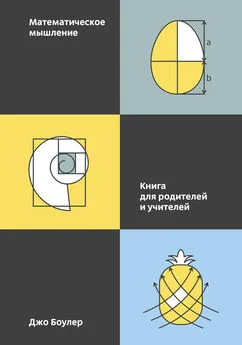

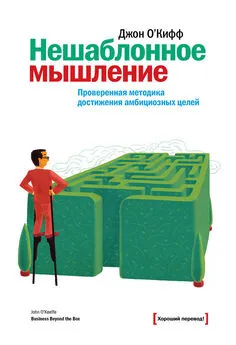
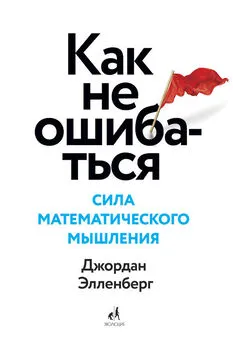
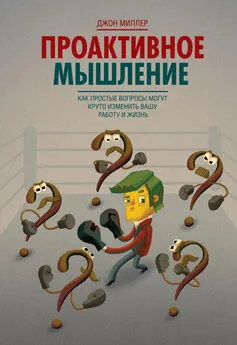
![Джоан Дидион - Год магического мышления [litres с оптимизированной обложкой]](/books/1145878/dzhoan-didion-god-magicheskogo-myshleniya-litres-s-op.webp)
